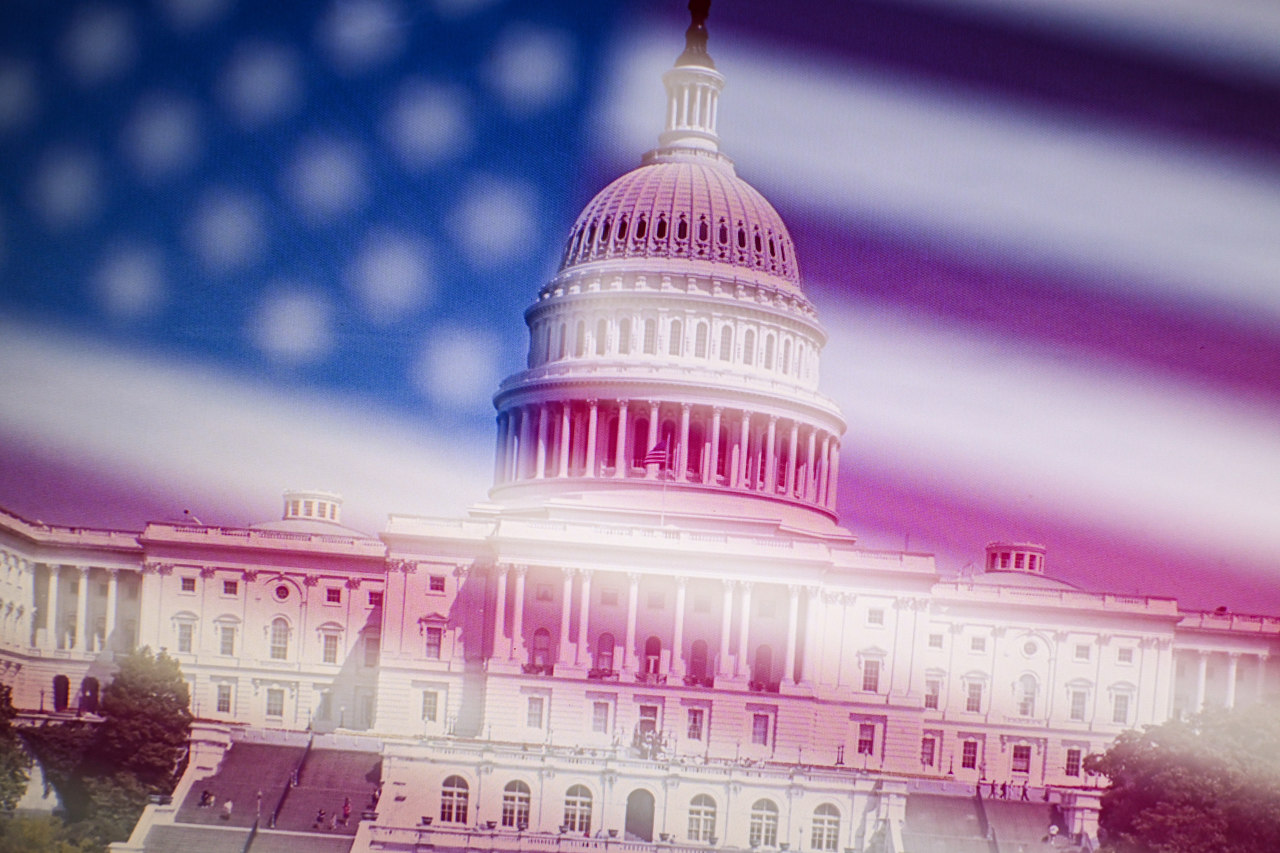Biden Administration Gears Up for Stormy Relations with a Divided Congress
The Republicans fared worse in the midterm elections than expected, but they managed to take over the House of Representatives. Now, they can block some of President Joe Biden’s initiatives, but not foreign policy to a great extent. While there have been examples of bipartisan collaboration in the past two years, the Republicans have already announced House-led investigations into the Biden administration’s actions, which will make it difficult to reach compromise. The first two years of Biden’s presidency may turn out to be the time of his greatest achievements in domestic politics.
 KEVIN LAMARQUE/Reuters/Forum
KEVIN LAMARQUE/Reuters/Forum
The November midterm elections to Congress ended with the Republican Party winning 222 out of 435 seats in the House of Representatives and retaking control of it after four years. However, the Republicans lost one Senate seat, which gave the Democrats full control of it by a simple majority of 51 votes (48 Democratic senators and 3 Independents). Since every bill must be approved by both chambers of Congress, the scrutiny by competing parties will hamper the legislative process. Republicans will likely block Democratic initiatives launched in the Senate by rejecting them in a vote or refusing to debate the bill at all. In turn, without the support of Democrats in the Senate, no bill adopted by Republicans in the House will come into force. If the president uses the veto, a supermajority of two-thirds in both chambers will be needed to override it, which is unlikely. In foreign policy, however, the House will not have much influence because this is an area with broad presidential authority and Senate oversight. Difficulties in implementing domestic policy may prompt Biden and his administration to be more active in the international sphere.
Economy and Taxes
The House wields the “power of the purse”, so the Republicans will block any of Biden’s further tax reforms, which are among his election promises. The president’s plans to tax unrealised capital gains is intended to increase revenue from the richest citizens. Conversely, the presidential veto should mean that Republicans will not be able to abolish the taxes introduced in the first half of Biden’s term, including the 15% global corporate tax introduced via the Inflation Reduction Act.
Republicans will most likely not push through solutions aimed at lowering inflation (currently at 7.1%), as both sides of the political scene believe this is the task of the Federal Reserve (the Fed’s interest rates are currently at 4% and further increases are expected). On the other hand, the amount of national debt and reducing federal budget spending will be hot topics. Republicans may push for reductions in social and health care. Because these are some of the most important issues for Biden, the Republicans will make the scale of the cuts conditional on concessions on other issues important to them. The possible lack of compromise on these issues and an accumulation of disputes between the chambers may result in gridlock in the budget negotiation process, which, if a budget bill or continuing resolution maintaining current spending is not adopted, will lead to another shutdown of the federal government (the last one was at the turn of 2018 and 2019).
Investigations
Taking control of the House of Representatives enables the Republicans to deliver on their promise to investigate alleged abuses by Biden and his administration. Investigations have been announced in 13 areas, including migration on the border with Mexico, the impact of Big Tech on limiting freedom of speech, U.S. policy towards China, the origin of the COVID-19 pandemic, the withdrawal from Afghanistan, activities of the Department of Justice (including the appointment of a special counsel in cases concerning Donald Trump) and the subordinate FBI, as well as the Biden family’s business connections and material benefits, particularly those of his son, Hunter. Republicans intend to start hearings within one month of the new Congress being sworn in on 3 January 2023. Department secretaries, their deputies, heads of agencies, and advisors to the president may be summoned to appear before the panels. The investigations may result in attempts to impeach and remove individual top officials, including Homeland Security Secretary Alejandro Mayorkas or Attorney General Merrick Garland, who are constantly criticized by Republicans. These initiatives are doomed to failure, though, because even if the Republicans succeed in impeaching any of them in the House (by a simple majority), they will not be removed from office by the Democratic-controlled Senate where a two-thirds majority is required. However, allegations of abuse and incompetence against Democrats and hearings before congressional committees will support the election campaigns of individual Republican congressional candidates, as well as anyone seeking the Republican Party nomination in the 2024 presidential election.
Impact on Foreign Policy
The key areas of interest of both chambers in foreign policy will be the broadly understood rivalry with China and support for Ukraine. Within the limits of their powers, the Republicans will push for limiting trade and technological cooperation with China and tightening relations with Taiwan, which in the first months of the next session of Congress may be the destination of the first official visit of the new Speaker of the House of Representatives (which would also symbolise the continuation of support expressed by Nancy Pelosi’s visit in August 2022). As regards support for Ukraine, some Republicans may be against maintaining its pace, although they are too few in number to threaten blockage of aid. The majority of Democrats and Republicans will support Ukraine. In November, Biden asked Congress to accept another $38 billion in aid for Ukraine, and it is still possible that the current Congress will pass this package during the “lame-duck” session before the next Congress is sworn in. A separate motion for presidential authority for an additional $7 billion drawdown (an administrative tool used by Biden to arm Ukraine with equipment from U.S. stockpiles) has also been submitted to Congress.
Continuing the Biden and the Democrats’ Agenda
Despite losing control of the House, Biden and the Democrats have a chance to implement some of their plans in domestic politics. The president can use executive orders, although they are a less durable tool than legislation because they can be repealed by the next president, as Biden did on the first day of his presidency with many of Trump’s orders. In addition, the nature of executive orders makes them susceptible to court challenges; for example, Biden’s decision in August to cancel some federal student debt was suspended after challenges by the Republican authorities of six states—the case will be decided in 2023 by the U.S. Supreme Court. For the administration, it is important that the Democrats maintained control over the Senate so that any personnel changes that require the consent of this chamber, including ambassadors and high positions in the Defense and State departments, as well as nominations for federal judges (including the Supreme Court), will not require compromise candidates or sit vacant. However, on the most polarising issues, such as the legality of abortion, it will not be possible to reach a compromise in Congress, leaving this and other similar issues unsettled for at least two more years.
Conclusions and Perspectives
Biden’s greatest achievements in domestic policy likely came during the first half of his term. During this time, important projects were adopted with the cooperation of at least some Republicans. Among them are the CHIPS Act and the Infrastructure Investment and Jobs Act. They show that agreement on the most important issues for the U.S. in a divided Congress is still possible. Ultimately, Biden, if he runs for re-election, will have to strive for compromise to ensure at least a partial implementation of his and the Democrats’ agenda. In the context of future elections, the Republicans cannot just oppose projects proposed by the Democrats, which would show them as an extremist party unready to take power, so too much of an emphasis on conducting investigations and a weak focus on topical policies may weaken their attractiveness, especially given the party’s need to gain independent voters.
A divided Congress has instruments to influence foreign policy, but cannot alter its foundations. In this context, the U.S. will continue to fulfil its commitments to NATO allies and support Ukraine in all current aspects. For Poland, this means stability in transatlantic cooperation with the U.S. regarding assistance to Ukraine and policy towards NATO, which will foster closer bilateral relations in other areas.





